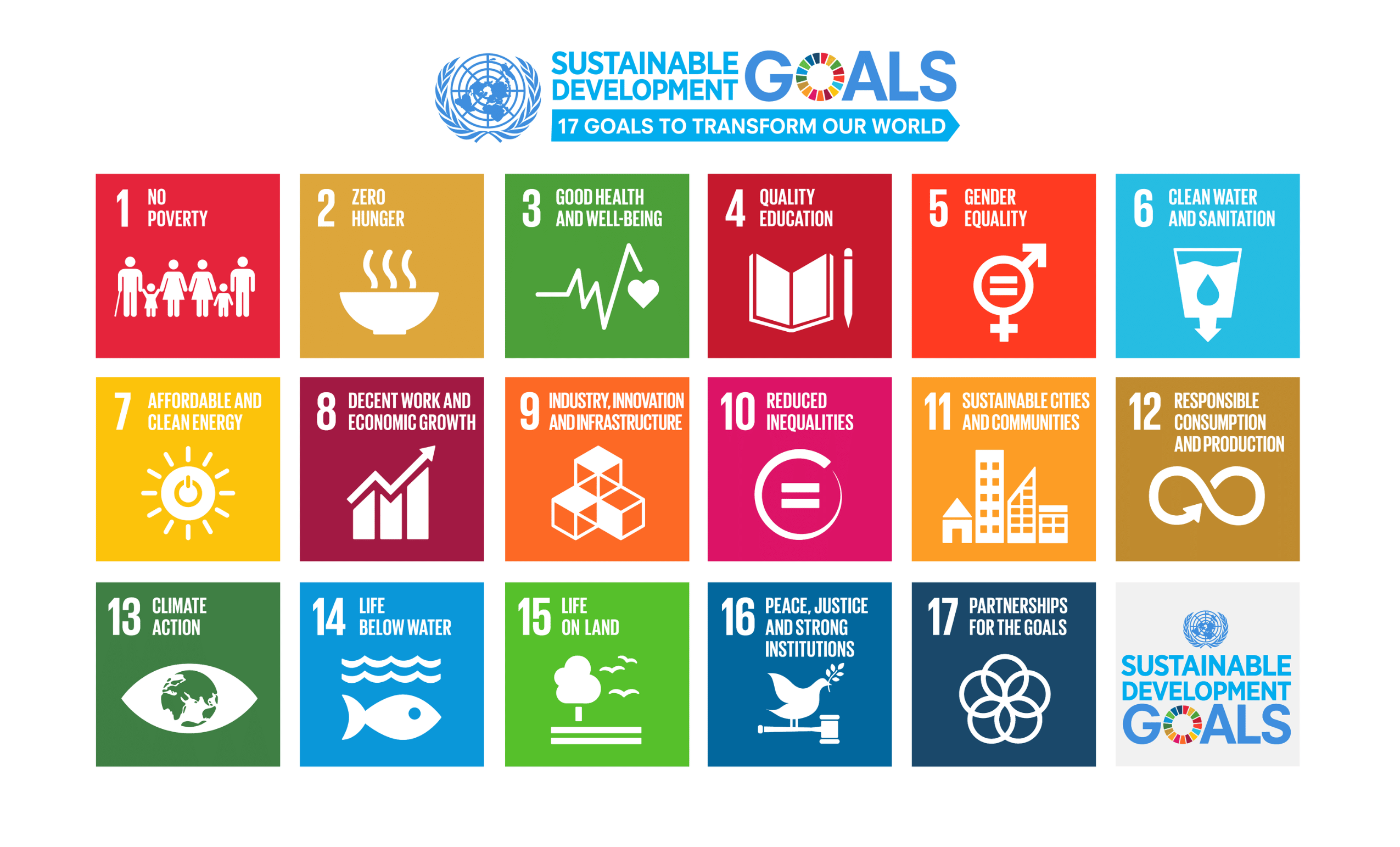DLRC Achieves Cyber Essentials Plus Certification
Published Apr 11, 2025
Published 26th March 2024

In the evolving landscape of corporate responsibility, ESG (Environmental, Social, and Governance) has emerged as the new paradigm, surpassing the traditional notion of Corporate Social Responsibility (CSR). ESG encapsulates a holistic approach that recognises the interconnectedness of environmental sustainability, social impact, and governance practices within businesses.
Contrary to common misconception, sustainability extends beyond environmental concerns and climate change. It is a comprehensive strategy that envisions businesses as enduring entities, standing the test of time through a combination of ethical business practices and a commitment to societal well-being.
ESG encompasses a multifaceted spectrum, where issues often overlap and intertwine. Environmental considerations involve a company’s impact on the planet, from carbon emissions to resource conservation. Social aspects delve into the company’s relationships with its employees, local communities, and broader society. While governance evaluates the structural integrity and ethical conduct of the organisation.
For a comprehensive understanding of the breadth covered by Environmental, Social, and Governance (ESG) considerations, we turn our attention to the United Nations Sustainable Development Goals (SDGs). These 17 goals, shown below, encapsulate a collective vision for a sustainable future, with an ambitious target to be achieved by 2030. Each goal is accompanied by a set of targets, providing a nuanced framework that extends beyond corporate responsibility.

The image serves as a visual guide to these goals, illustrating the interconnected nature of ESG principles. It is important to note that countries worldwide have committed to prioritising progress for those who are furthest behind. The SDGs are meticulously designed to address and eliminate a range of critical issues. Including but not limited to poverty, hunger, AIDS, and discrimination against women and girls.
By aligning with and working towards the SDGs, businesses can not only contribute to global sustainability but also integrate meaningful benchmarks into their ESG strategies. For a comprehensive exploration of the ongoing advancements in the SDGs, the United Nations Procurement Division releases Integrated SDG Insights. These insights delve into the intricacies of accomplishing the SDGs by 2030. Each report originates from a thorough examination of national priorities and the day-to-day challenges encountered by countries. Serving as a practical guide, these reports spotlight the policy decisions undertaken by governments operating within stringent fiscal and financial constraints. By assimilating data from various sources, these insights facilitate the examination of SDG trends, national priorities, interconnections, and potential future scenarios. They unveil overarching patterns and SDG trajectories that transcend the 2030 timeframe, offering invaluable guidance to promote sustainable practices and contribute to the realisation of a more inclusive and equitable global landscape.
Sustainability ambitions can be difficult for SMEs (small and medium-sized enterprises) to define and achieve and it requires considerations within budgetary constraints. However, it is vitally important that SMEs make progress in this area as in the UK they account for 99.9% of the business population. They represent about 90% of businesses and more than 50% of employment worldwide. It is, therefore, vital for SMEs to make changes to their practices and not only rely on larger companies to work towards sustainable goals.
Understanding and effectively managing greenhouse gas emissions is critical in the pursuit of sustainable business practices. Greenhouse gas emissions are classified into three scopes: Scope 1, Scope 2, and Scope 3. These scopes are determined by where the emissions originate from. Scope 1 covers direct emissions that a company generates while performing its business activities. Whereas Scope 2 covers indirect emissions from purchased energy, and Scope 3 covers indirect emissions in the value chain. All companies in the UK will have to report on their carbon footprint by 2025 (Scope 1 and Scope 2). More regulations are likely to come into place for the UK to meet its 2050 Net-Zero goal; this will potentially shock companies who fail to prepare.
Moreover, where SMEs have larger clients who are subject to reporting and come under more public scrutiny. They may find that these clients are increasingly asking for ESG credentials or policy information to complete their Scope 3 reporting requirements. This, as well as the increasing number of potential employees ranking sustainability as an important aspect of their preferred job role, means that becoming a sustainable business is essential to being a competitive business. This being said it is important not to abandon the principle that sustainability is an end in itself and not merely a means to competitive business.
SMEs face unique challenges on their path to becoming environmentally conscious. While the sustainability journey may seem arduous for SMEs, it is essential to recognise the barriers and actively seek solutions.
Many SMEs do not own the buildings they operate in, limiting their autonomy to make decisions on crucial aspects such as green energy supply or building upgrades. This lack of ownership can impede the implementation of efficiency improvements and hinder the adoption of eco-friendly practices within their operational footprint.
However, there is hope. Even if SMEs don’t have direct control over their spaces, landlords are not exempt from the growing requirements and regulations surrounding sustainability. This creates an opportunity for SMEs to engage with landlords, encouraging them to make environmentally responsible decisions that can positively impact the overall sustainability of the business ecosystem.
Unlike larger corporations, SMEs often grapple with limited resources, both financial and human. Allocating funds for a dedicated Environmental, Social, and Governance (ESG) team or appointing a representative to engage with boards focused on sustainability can be a challenging task. SMEs operate on tighter budgets, making it difficult to prioritise sustainability initiatives amidst competing financial demands.
Additionally, the resource constraint extends to the time and availability of employees. With small teams and often full schedules, finding the time to dedicate to ESG initiatives becomes a significant hurdle. Employees may already be stretched thin, focusing on core business functions, leaving little room for active participation in sustainability efforts.
SMEs can begin their journey toward sustainability by aligning their business practices with specific SDGs relevant to the pharmaceutical industry. Integration involves incorporating these goals into the core values, mission statements, and strategic plans of the company. For instance, businesses can focus on responsible production, gender equality, and affordable clean energy, among others, as part of their commitment to the SDGs. If an SME does have the financial means, hiring a third party to assist in their sustainability efforts can be a viable solution to address the lack of available in-house staff.
Additionally, SMEs can benefit from staying informed about the ESG practices of similar companies and formulating policies that align with industry standards; this is at present challenging due to the lack of mandated reporting for SMEs. They may be able to gain inspiration from larger enterprises, however, their goals and initiatives may be inappropriate for smaller companies to manage. When reporting for all companies becomes mandatory this difficulty will be alleviated.
SMEs can empower their employees to contribute to sustainability efforts. This can involve training programs on environmental conservation, diversity and inclusion initiatives, and support for social causes. By fostering a workplace culture that values sustainability, SMEs not only contribute to SDGs related to decent work and economic growth but also attract socially responsible talent.
Collaboration is key to achieving the SDGs. SMEs can form partnerships with other businesses, NGOs, and government agencies to amplify their impact. Joint efforts can lead to shared resources, knowledge exchange, and the development of innovative solutions. By working together, SMEs can address complex challenges that extend beyond the scope of individual organisations. For example, DLRC made a deal with our UK landlord where, in exchange for a rent freeze, energy-efficient LED lighting was installed throughout the office.
Engaging in meaningful CSR initiatives is a powerful way for SMEs to contribute to the SDGs. CSR goals can often provide significant positive improvements without a large budget or resource investment. This can involve supporting local communities, promoting education, and investing in healthcare. By actively participating in initiatives that align with the SDGs, SMEs not only make a positive impact but also enhance their reputation and build strong relationships with stakeholders.
While recording and measuring the impact of these policies is crucial for demonstrating progress, it’s important to acknowledge that these processes require time and resources. Despite these challenges, SMEs can navigate the ESG landscape effectively by staying informed, implementing realistic policies that align with their budget and operational capacities, and, where appropriate, seeking external assistance.
Significant steps are being undertaken to improve sustainability and minimise the impact on the environment within the pharma industry. At the recent TOPRA Annual Symposium, the welcome lecture, delivered online by Dr Bengt Mattson, Policy Manager at the Swedish Association of Pharmaceutical Industry (Lif), highlighted the many areas where Pharma is working to improve its track record.
At the forefront of sustainable initiatives is the Pharma Industry’s commitment to addressing its carbon footprint. Companies are actively assessing and mitigating their climate change impact, acknowledging the need for responsible practices.
Embracing the circular economy model, the pharmaceutical sector is proactively working to minimise greenhouse gas emissions across the entire value chain. This includes a shift toward non-hazardous materials, increased recycling efforts, and optimisation of packaging sizes.
Recognising the potential impact of pharmaceuticals on the environment, the industry is enhancing methodologies for environmental risk assessments. While the majority of products pose no risk, the focus is on strengthening assessment processes to identify and address any potential environmental concerns. This approach extends to older products launched before such assessments were mandatory, demonstrating a commitment to retroactively address environmental risks.
Acknowledging the critical importance of clean water, the Pharma Industry is actively working to safeguard water sources. Pollution stemming from manufacturing processes, improper disposal, and patient excretion (a dominant source) is being addressed through proposed urban wastewater treatment and integrated water management directives. These proposals have the potential to significantly impact the industry’s water-related footprint.
The Pharma Industry is aligning its manufacturing practices to combat anti-microbial resistance. Standardising the production of pharmaceuticals plays a crucial role in addressing this global health concern. By adopting uniform manufacturing practices, the industry aims to contribute to the responsible use of antimicrobial agents and mitigate the risks associated with their overuse.
The Pharma Industry’s commitment to sustainable initiatives is a testament to its dedication to environmental stewardship. By addressing climate change, embracing circular economy practices, conducting robust environmental risk assessments, protecting water sources, and combating anti-microbial resistance, the industry is actively shaping a greener future. These initiatives underscore the pharmaceutical sector’s pivotal role in balancing health and environmental sustainability, setting a positive example for other industries to follow.
Sustainability, as defined by ESG principles, represents a harmonious convergence of growth potential and responsible business practices. By integrating environmental considerations, social impact, and governance standards, businesses can not only weather the challenges of today but also thrive in the complex landscape of tomorrow.
Small and Medium Enterprises (SMEs) play a pivotal role in advancing sustainability, despite facing limitations in budget and personnel resources. While these constraints may pose challenges to implementing sustainable changes and conducting thorough measurements and reporting, it’s crucial to recognise that substantial improvements within SMEs are not only possible but also imperative. These enterprises, though smaller in scale, have the potential to contribute significantly to the broader landscape of sustainability. This reinforces the idea that inclusive and impactful progress necessitates the active participation of businesses of all sizes.
Embracing ESG is not just a trend but a strategic imperative for businesses aiming to create a lasting impact. It’s a call to action for companies to re-evaluate their practices, adopt a broader perspective of sustainability, and contribute meaningfully to a world where responsible business is synonymous with enduring success.
DLRC, in its commitment to sustainable business practices, has strategically employed the B-Corp framework as a valuable tool. It has been pivotal in mapping out necessary changes across various dimensions of sustainability and the overall business structure. A key focus for DLRC lies in identifying areas where we can make the most significant impact. In our case, the societal aspect of ESG takes precedence. However, DLRC recognises the importance of not neglecting environmental and governance issues, especially given the nature of the industry in which they operate where environmental factors tend to carry heightened significance. By adopting a holistic approach, DLRC emphasises a regard for the planet, people, and processes.

Published Apr 11, 2025

Published Mar 27, 2025

Published Mar 06, 2025

Published Feb 26, 2025

Published Feb 25, 2025

Published Feb 03, 2025

Published Feb 03, 2025

Published Jan 30, 2025

Published Jan 30, 2025